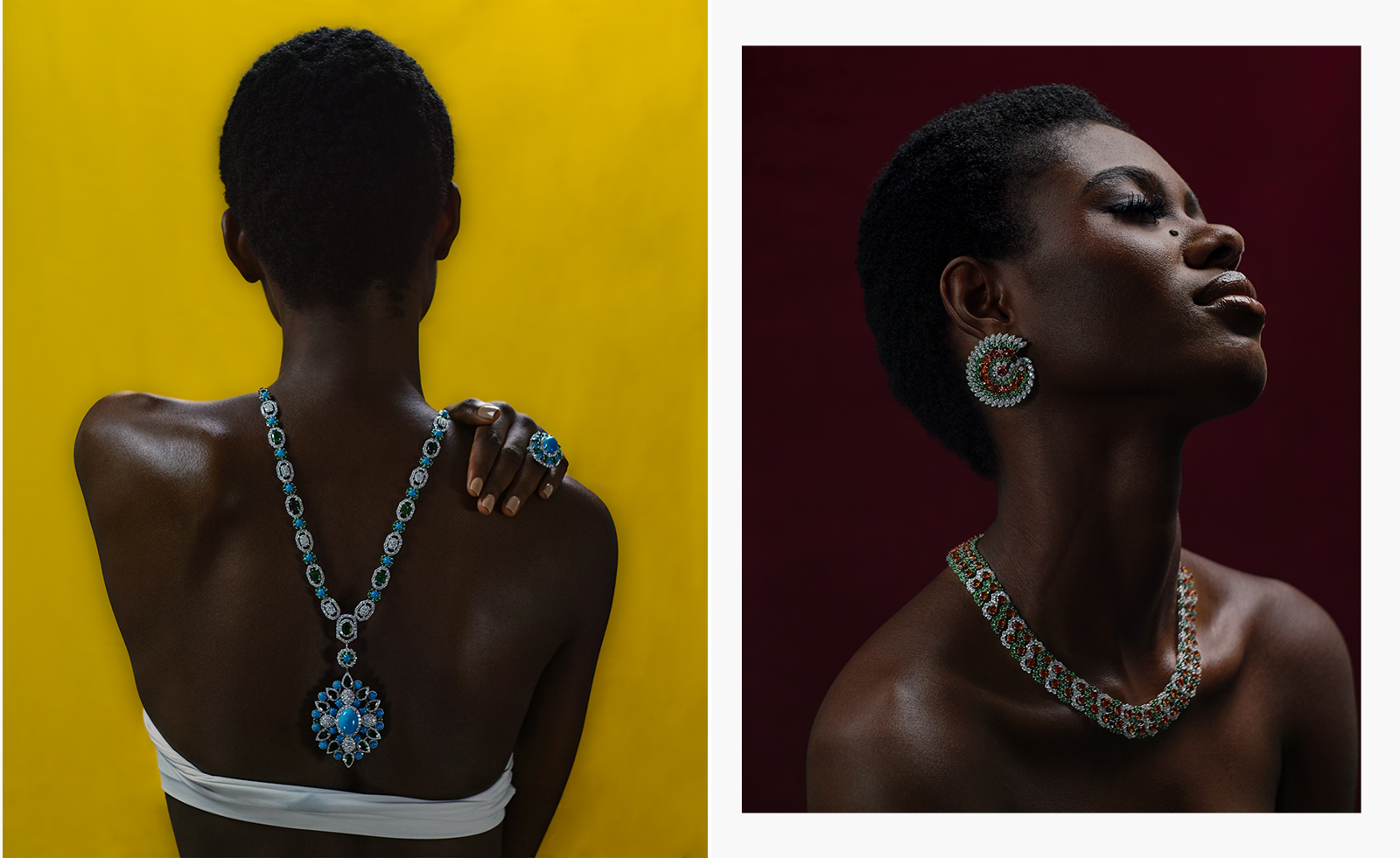
'Design and the rarity and quality of gemstones are everything to me. My love for diamonds stems from the feeling I get when I am wearing them; one of timeless elegance, femininity and strength,' says Akunna Nwala-Akano, founder of Akano Diamonds (formerly known as DEJ), the Lagos-based high-jewellery house, that draws deeply from her cultural heritage and lifelong belief in the transformative power of jewels.
In the space of three years, Akano Diamonds has grown from being an inner-sanctum secret of Nigeria’s jewellery cognoscenti to a growing presence globally, with celebrity clientele and a soon-to-open flagship store. Akano Diamonds’ recently released high-jewellery pieces came with the twin mandates of seducing clients and presenting the case for the renaissance of the jewellery landscape on the continent. 'Of course, I have experienced people assuming that high and fine jewellery coming out of Africa would not be up to standard, would be poorly made, would not be anything to reckon with, and it is always a pleasure to surprise.'
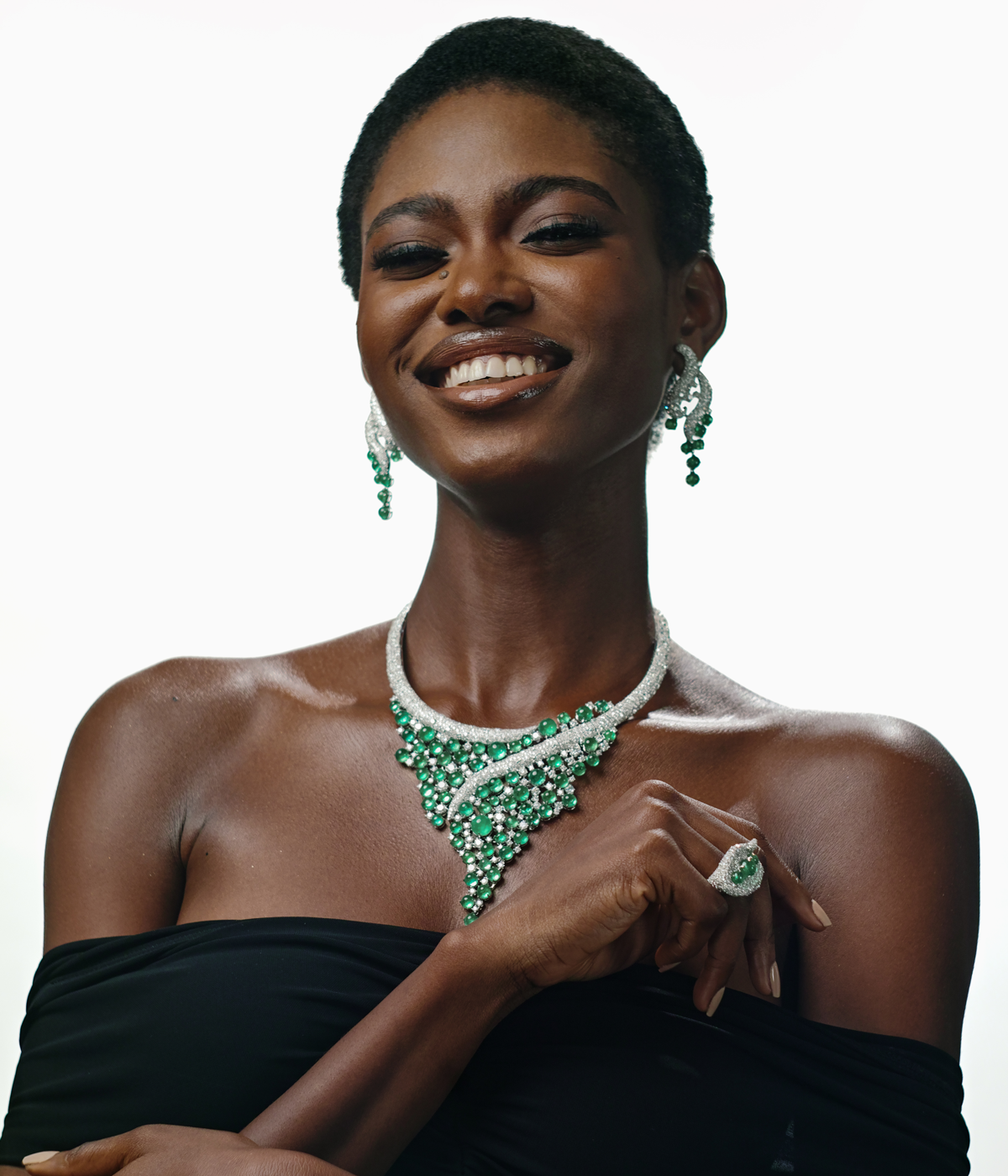
Nwala-Akano’s early life was immersed in jewels: 'My grandmother was a lover of jewellery. It was from her that I learnt about emeralds, rubies, coral and other precious gemstones and she gifted me my first pieces as is our custom.' Nwala-Akano hails from an aristocratic family and it has informed her perspective on wearing, collecting and now, designing. 'Jewellery is not just about adornment. As an Igbo woman, it is spiritually and culturally significant. The studs that a baby wears, be they gold or diamonds, echo a prayer, that as the child grows, they will always have an abundant life. Status and lineage have long been depicted in the kind of jewellery people wear, be it for occasions or every day. It is a communication in and of itself. When people see you, they know of you before you have even said anything.'
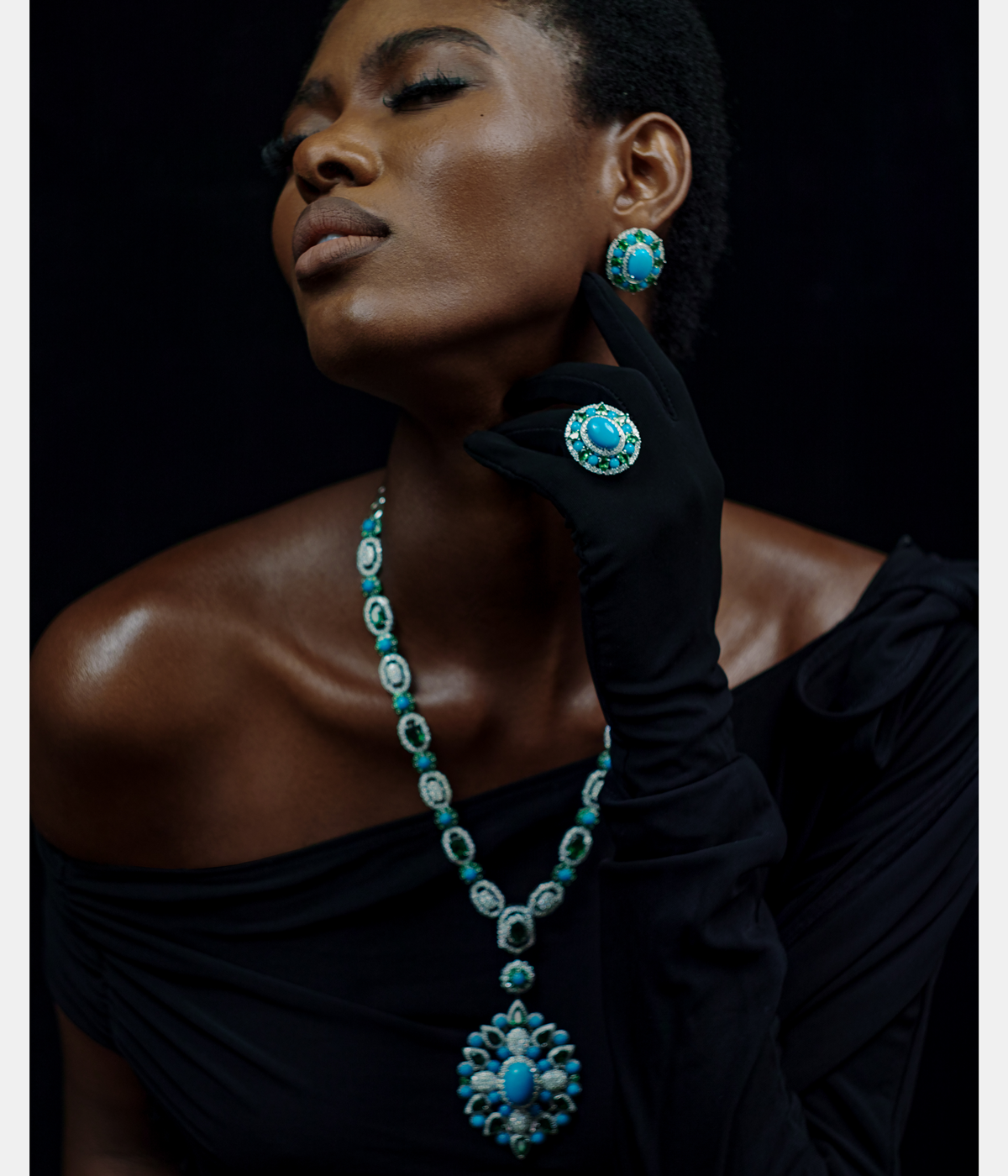
Further informing Nwala-Akano’s creative process and the ideation behind each piece are folklore, the agrarian year and nature. 'I am a very passionate person and the things I come in contact with, whether emotionally or visually, recently or from long held memories, inspire me.' Thus, a rare 75ct rubellite is reimagined as an intoxicating elixir vessel, the centrepiece to a diamond and ruby suite called Mkpo, Igbo for ‘Potion’.
A cache of emerald beads, reminiscent of the intense green hues that follow the rainy season, is transformed into the suite ‘Mkpulu’, Igbo for ‘seeds’, with diamonds mirroring the luminous dew found upon each leaf. An ode to the black velvet tamarind, Nwala-Akano’s favourite fruit, is realised in ‘Anwi’: a tsavorite, orange sapphire and diamond suite. 'I kept returning to the green leaves, and the orange flesh. I already knew I would elevate the piece with diamonds, but when I first saw those orange sapphires, I felt like popping them in my mouth because they looked so delicious.' Finally, ‘Chika’, which means ‘God Is Great’ is a turquoise, emerald and diamond love letter to her daughter, and as the gemstone is considered sacred in many cultures, especially poignant.
Of her choice of Igbo nomenclature for her pieces, the jewellery designer explains, ‘my first language is Igbo, so I think and feel in it first, and even though I have travelled the world, I view language as an anchor. And because I love and understand my culture deeply, it is something I want to share through my jewellery.' Jewellery has long been a portal to other cultures and nations, but with Nwala-Akano’s work it also animates contemporary discourses on what remains when tradition segues with modernity.
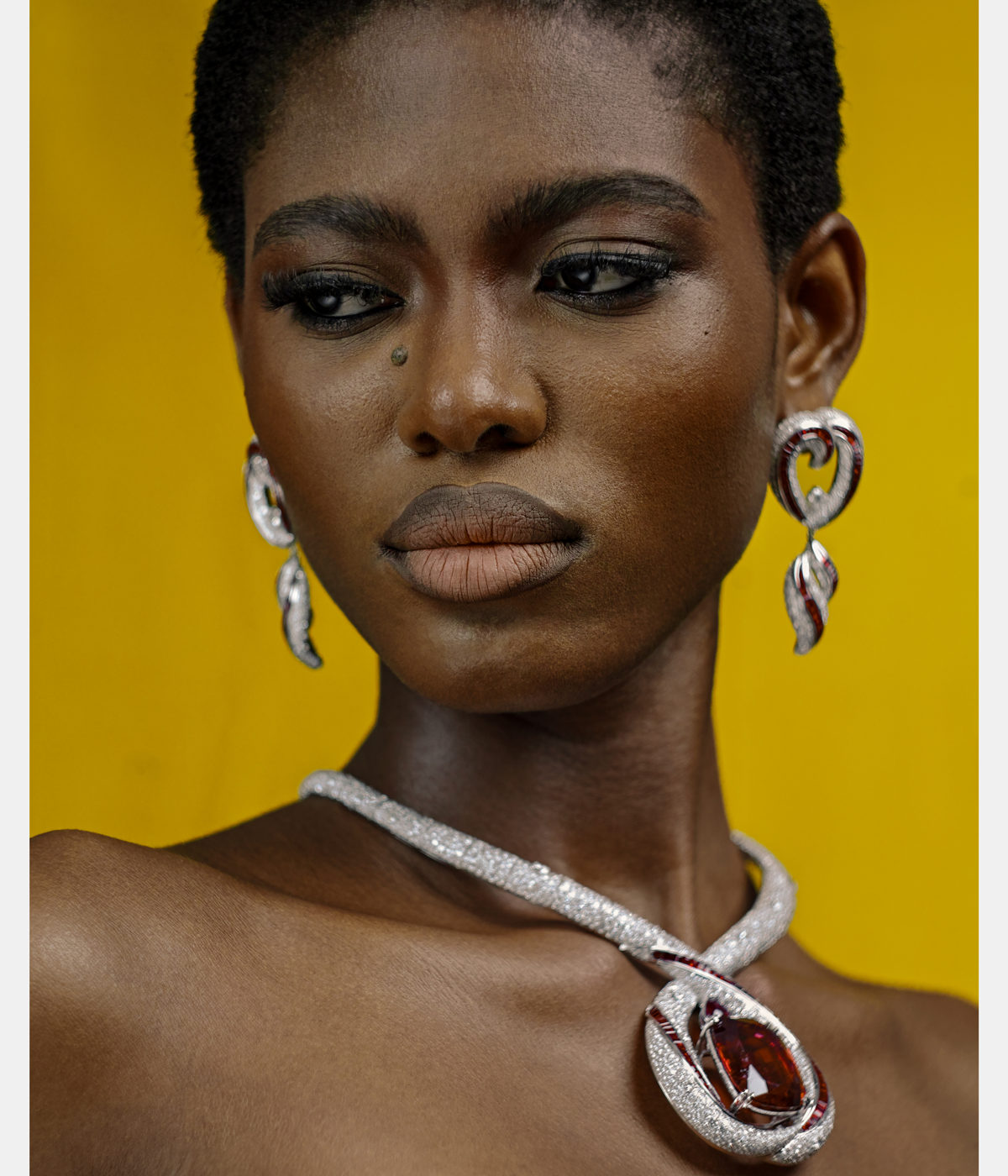
Like many an autodidact, Nwala-Akano’s design journey was birthed from being unable to find precisely what she wanted with other jewellers. 'I started sketching designs during the pandemic, it was a strange time but also a perfect time to begin creating.' While her extensive private collection of jewels features many of the hallowed houses of Paris’ Place Vendôme and beyond, she was keen to articulate and refine her own design language, revelling in experimentation. 'I create a lot. A piece can start from a series of crazy sketches, that are in search of the right stones,' she says, laughing. 'From there, will be a process of making, oftentimes dismantling, and figuring out ways a piece can be transformed and enjoyed in many ways by the wearer.'
Receive our daily digest of inspiration, escapism and design stories from around the world direct to your inbox.
Her clients tend to be women, who like her are seeking 'classic pieces that have the undertone of the fierce African woman' an intention reflected in the house’s bold aesthetic. Of the recent name change, Nwala-Akano reflects, 'I changed the brand name from DEJ to Akano Diamonds because so much of my personal story has informed how I design and create.' It is a narrative she is keen to share with the world. And by placing the most popular and enduring gemstone of all at the heart of all she designs, she has made her intention to create 'a heritage house that lives on for many generations' as clear as any flawless gem.
Mazzi Odu is a Ugandan-British writer, editor and cultural consultant based in Lagos, Nigeria. Her work focuses on jewellery, design, fashion and art. An alumna of the London School of Economics and Political Science, she has profiled a cross section of leading design talents and creative voices, with a special emphasis on those from the Global South and its Diaspora communities.
-
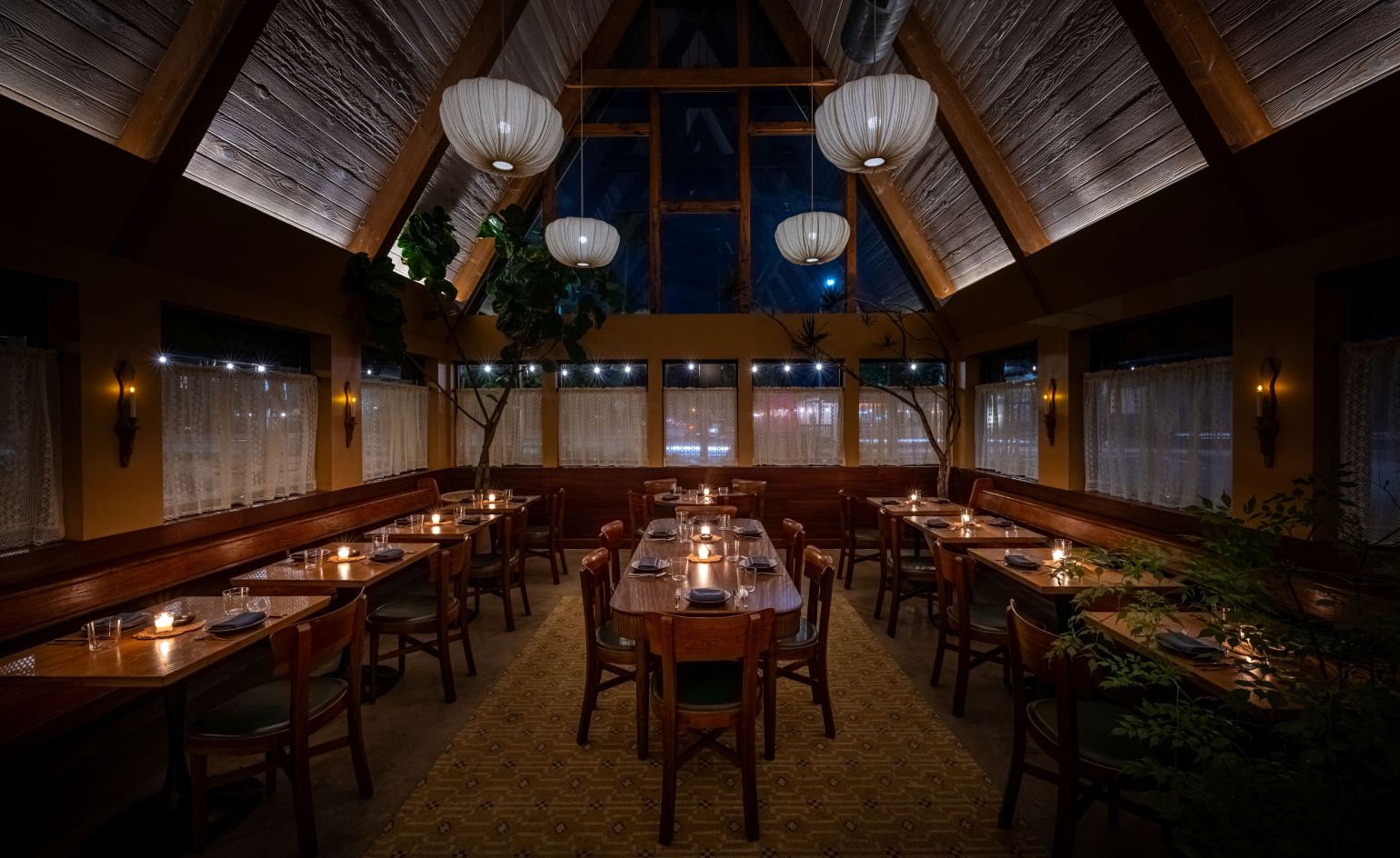 Chef Ray Garcia brings Broken Spanish back to life on LA’s Westside
Chef Ray Garcia brings Broken Spanish back to life on LA’s WestsideClosed during the pandemic, Broken Spanish lives again in spirit as Ray Garcia reopens the conversation with modern Mexican cooking and layered interiors
-
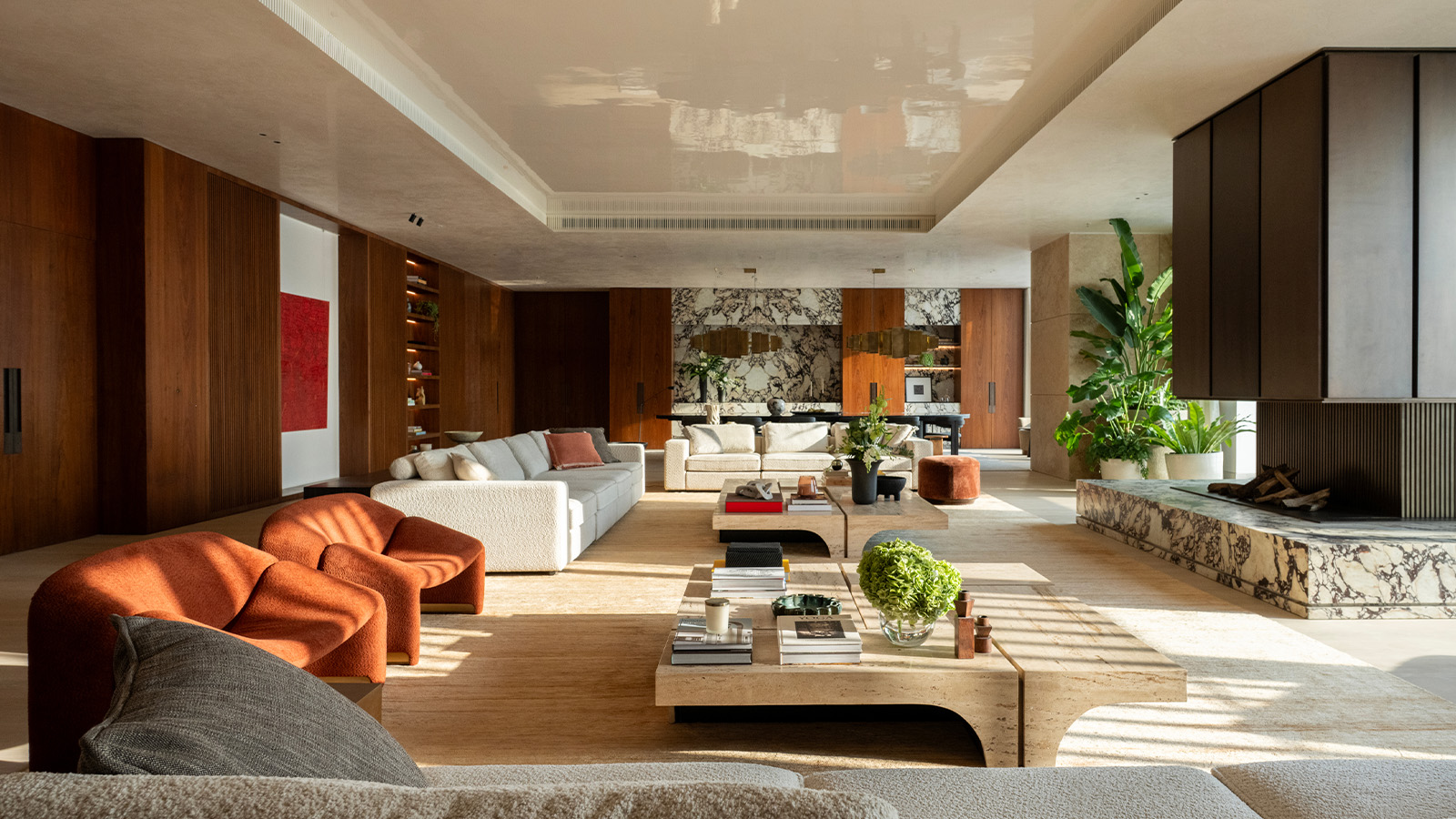 Inside a skyrise Mumbai apartment, where ancient Indian design principles adds a personal take on contemporary luxury
Inside a skyrise Mumbai apartment, where ancient Indian design principles adds a personal take on contemporary luxuryDesigned by Dieter Vander Velpen, Three Sixty Degree West in Mumbai is an elegant interplay of scale, texture and movement, against the backdrop of an urban vista
-
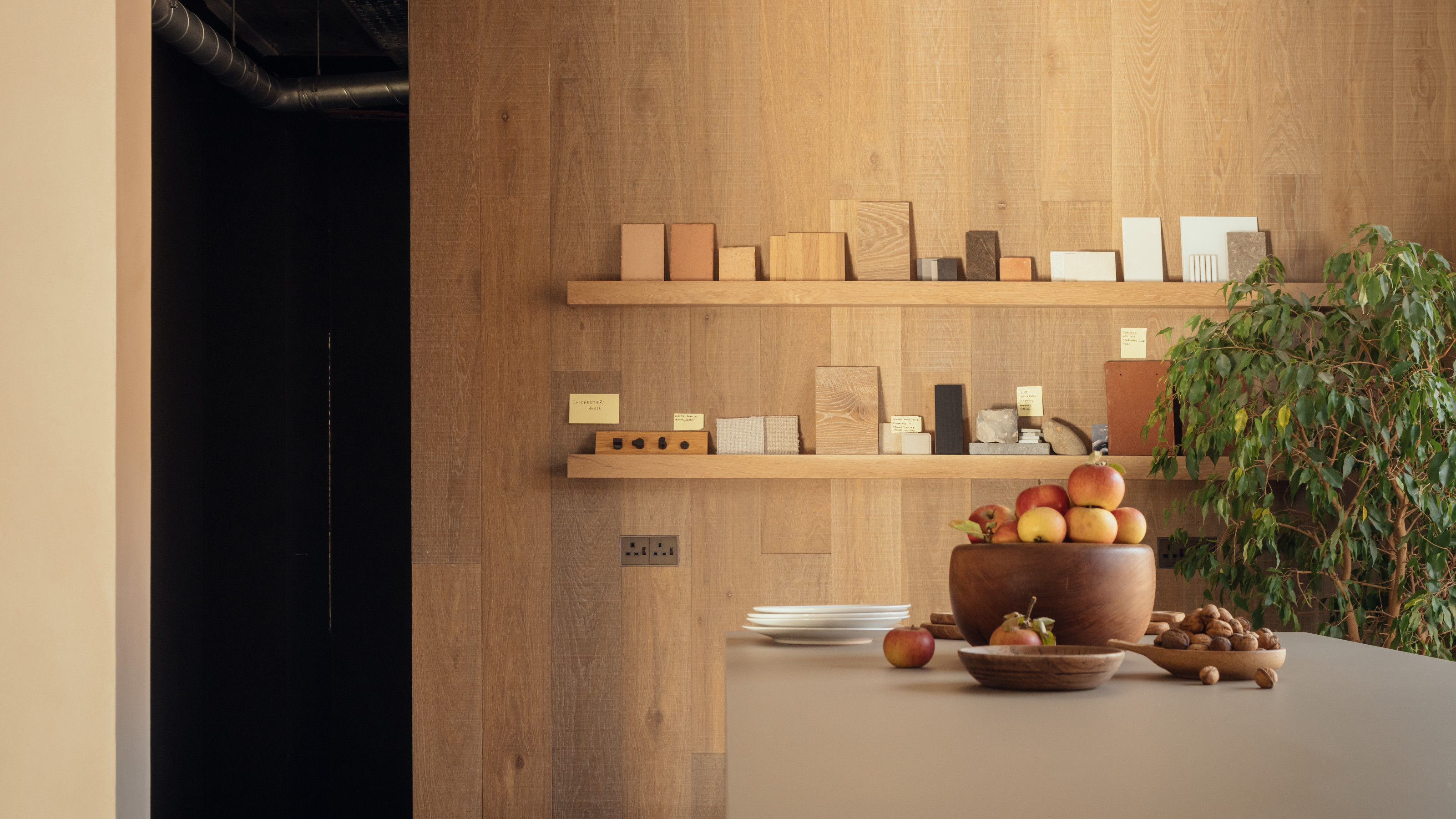 A bespoke studio space makes for a perfect architectural showcase in Hampshire
A bespoke studio space makes for a perfect architectural showcase in HampshireWinchester-based architects McLean Quinlan believe their new finely crafted bespoke studio provides the ultimate demonstration of their approach to design